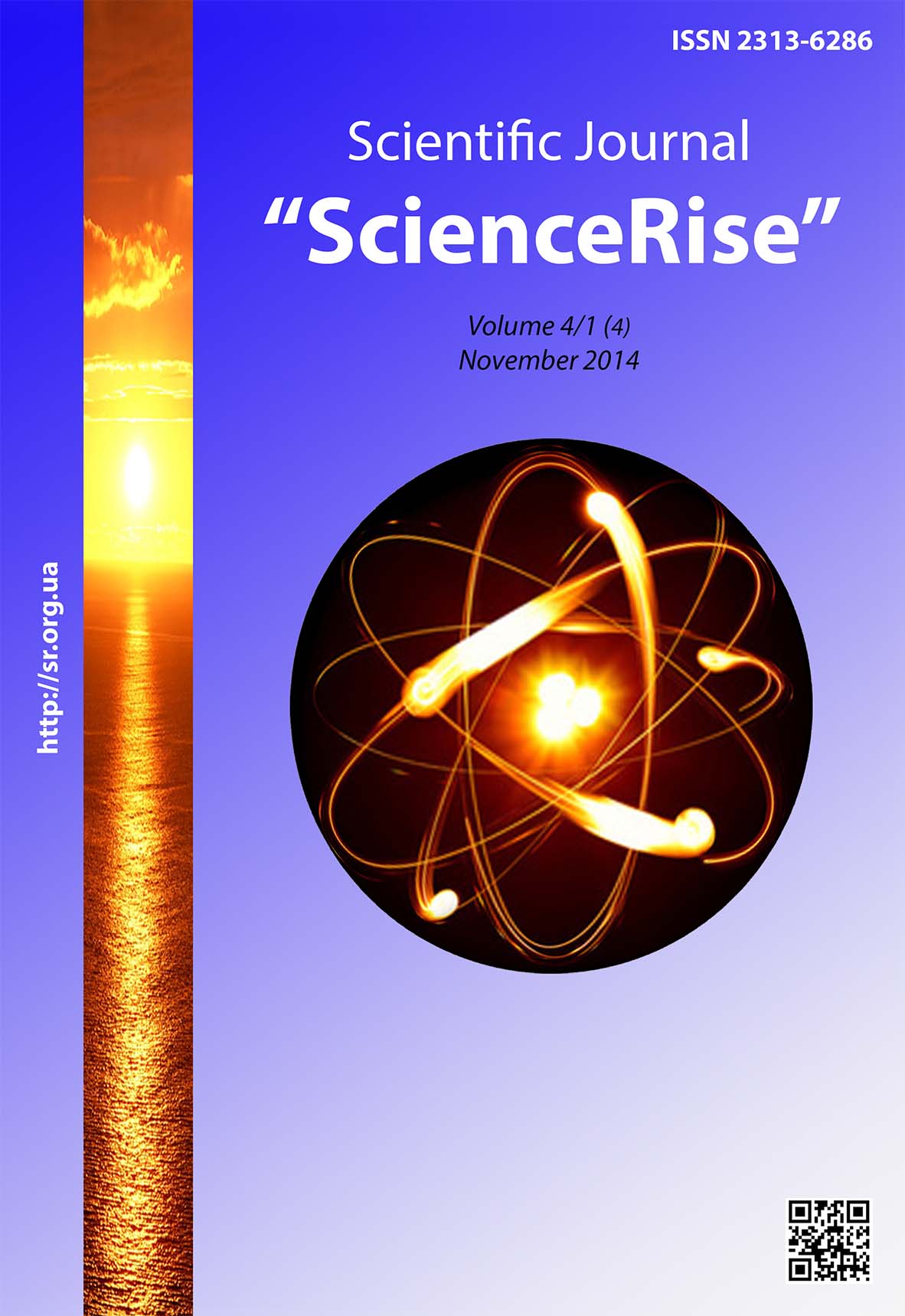Assessment of functional working condition and working capacity of people of all ages in mental stress terms
DOI:
https://doi.org/10.15587/2313-8416.2014.28980Keywords:
working condition, working capacity age dynamics, aging rateAbstract
The results of functional state evaluation of working people of all ages in mental stress terms were reviewed in this research. It has been proved that for estimation of optimum mental capacity a person needs the use of functional age and aging rate to determine the effect of the age factor on the adaptation of professional staff, including persons in conditions of increased neuro-emotional stress.
References
Gorgo, Y. (2002) Functcionalni robochy stani ludiny ta jh sistematizatcia [Functional operating states rights and their ordering]. Physiological Journal, 48 (2), 119–120.
Reshetyuk, A. L., Korobejnikov, G. V., Polyakov, A. A. (1996) Viznachennia functcionalnogo viky ta tempiv starinnia ludiny [Determination of functional age and the rate of aging]. Ministry of Health of Ukraine, 8.
Bashkireva, A., Khavinson, V. (2001). Influence of Biological Age on Professional Efficiency: Communication I. Biological Age and Mental Efficiency. Biomedical and Life Sciences, Human Physiology, 27 (3), 353–359.
Bashore, T. R., Bashore, T. R., Van Der Molen, M. W., Ridderinkhof, K. R., Scott, A. Wylie Richard (1997) Mental Resources: Intensive and Selective. Aspects Biological Psychology, 45 (1-3), 263–282.
Richards, M., Touchon, J., Ledersert, B. et al. (1999) Cognitive decline and aging: Are AAMI and AACD distinct entities? Geriatric Psychiatry, 14, 534–540. doi: 10.1002/(sici)1099-1166(199907)14:7<534::aid-gps963>3.0.co;2-b
Frolkis, V. (1981) Starinie i vitaukt, adaptatsia I dezadaptatsia [Aging and vytaukt, adaptation and maladjustment]. Gerontology and hereditary, 7 (4), 5–15.
Downloads
Published
Issue
Section
License
Copyright (c) 2014 Наталя Валеріївна Харковлюк-Балакіна

This work is licensed under a Creative Commons Attribution 4.0 International License.
Our journal abides by the Creative Commons CC BY copyright rights and permissions for open access journals.
Authors, who are published in this journal, agree to the following conditions:
1. The authors reserve the right to authorship of the work and pass the first publication right of this work to the journal under the terms of a Creative Commons CC BY, which allows others to freely distribute the published research with the obligatory reference to the authors of the original work and the first publication of the work in this journal.
2. The authors have the right to conclude separate supplement agreements that relate to non-exclusive work distribution in the form in which it has been published by the journal (for example, to upload the work to the online storage of the journal or publish it as part of a monograph), provided that the reference to the first publication of the work in this journal is included.

